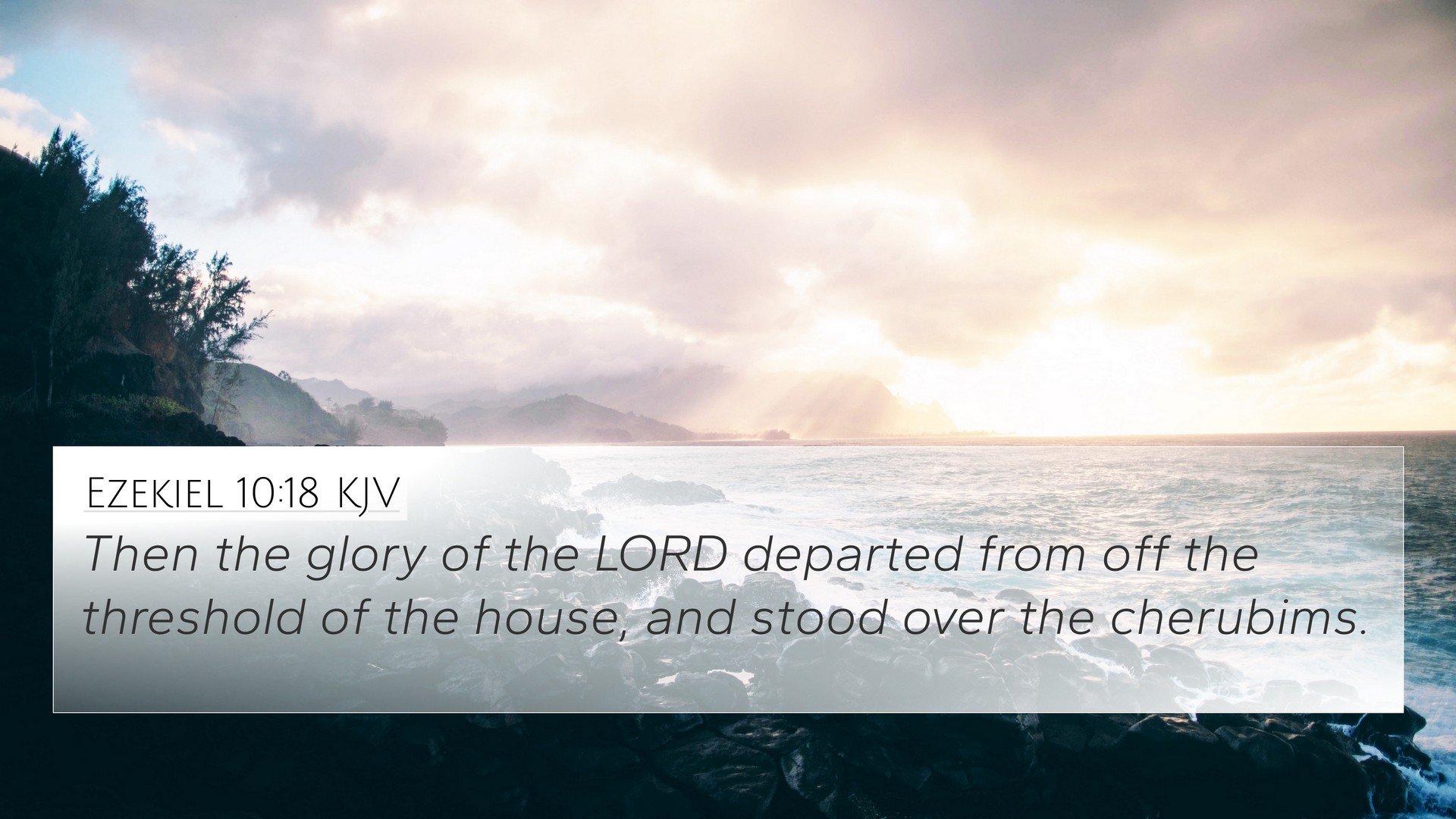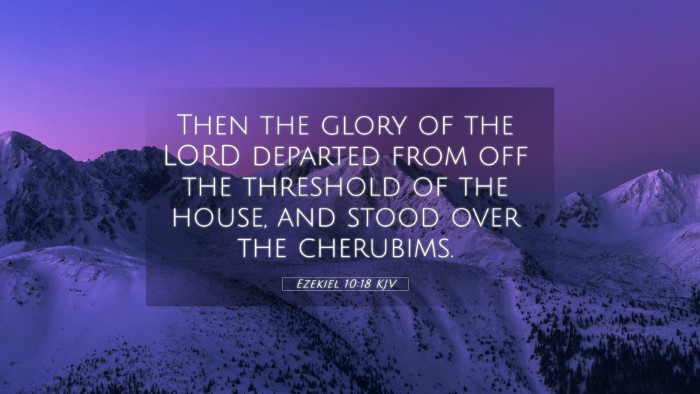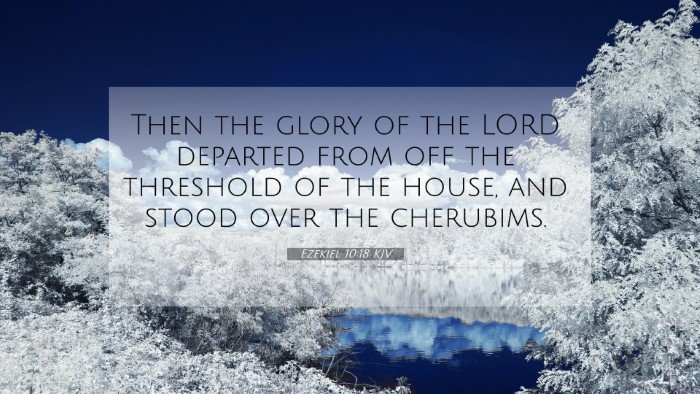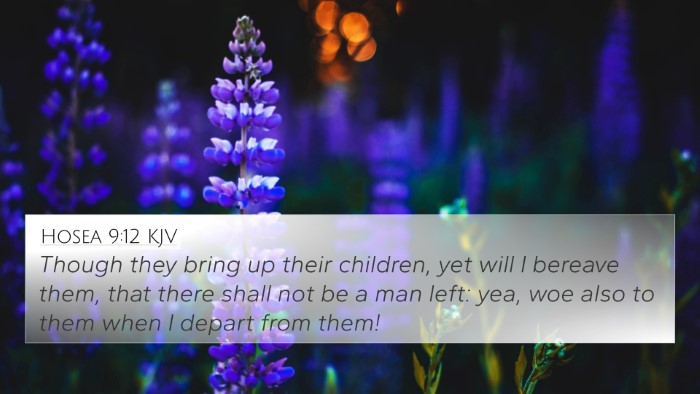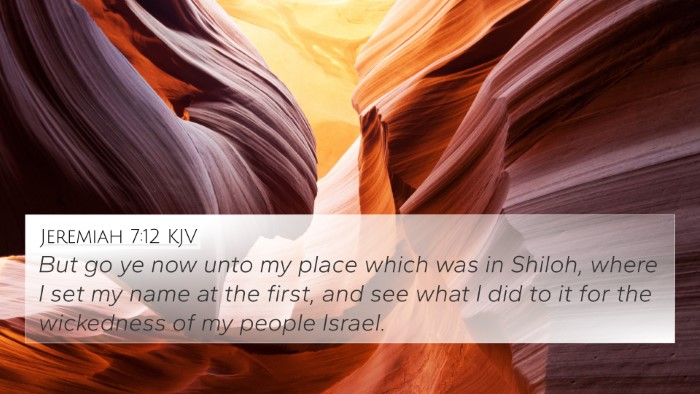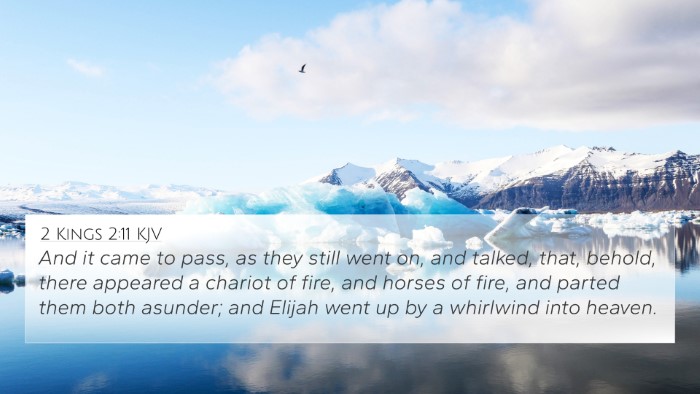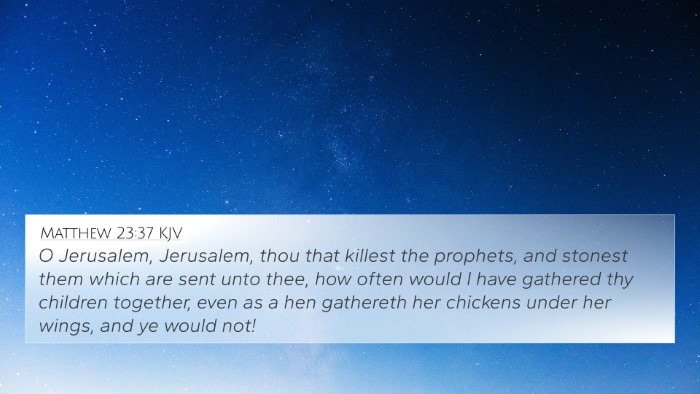Ezekiel 10:18 - Verse Meaning and Interpretation
Ezekiel 10:18 states: "Then the glory of the Lord departed from the threshold of the temple and stood over the cherubim." This verse marks a significant moment in the prophecy of Ezekiel, one that highlights the departure of God's presence from His temple, indicating a profound moment of judgment and divine withdrawal.
Summary of Interpretations
This verse carries deep theological implications regarding God's relationship with His people and the consequences of their actions. Below are summarized thoughts from notable public domain commentaries:
-
Matthew Henry:
Henry emphasizes the gravity of God's departure from the temple, which symbolizes the abandonment of His people due to their sinfulness. He interprets this act as a consequence of their idolatries and a signal of impending judgment.
-
Albert Barnes:
Barnes provides insight into the significance of the cherubim, reflecting on their role as guardians of the divine presence. The movement of God's glory, he explains, indicates a withdrawal from those who are unworthy, thus severing the covenant relation.
-
Adam Clarke:
Clarke addresses the broader implications of this event, linking it to the themes of God's judgment intertwined with grace. He notes that this departure serves as a cautionary tale about the consequences of turning away from God.
Thematic Connections
This verse can be contextualized within a broader biblical narrative. Below are several keys to understanding its significance through Bible verse cross-references:
- Ezekiel 9:3: God's glory departing prior to judgment.
- 1 Samuel 4:21-22: The departure of the glory of the Lord from Israel.
- Jeremiah 7:12-14: A warning of judgment on the temple.
- Matthew 23:38: Jesus lamenting over Jerusalem and its desolation.
- Acts 7:48-50: A New Testament reflection on God's dwelling among humans.
- Revelation 21:3: A promise of God's ultimate presence with His people.
- Isaiah 63:10: The grief of the Holy Spirit over rebellion.
Understanding Through Cross-Referencing
When engaging in cross-referencing Biblical texts, it is vital to recognize thematic continuities and divergences. For instance, understanding Ezekiel’s context allows for a deeper comprehension of New Testament teachings about divine presence and judgment.
Tools and Resources for Cross-Referencing
Utilizing a Bible concordance and a cross-reference Bible guide can enhance your study. These resources provide methods for cross-referencing Bible study and detailed connections between verses.
Conclusion
Ezekiel 10:18 serves as a vital reminder of the consequences of sin and the seriousness of God's judgment. Utilizing tools for cross-referencing can illuminate the richness of biblical connections and deepen one's understanding of themes such as divine presence, judgment, and grace. The interplay of these themes forms a foundational part of the tapestry of scripture, where Bible verses that relate to each other are crucial for a cohesive understanding of God's dealings with mankind.
